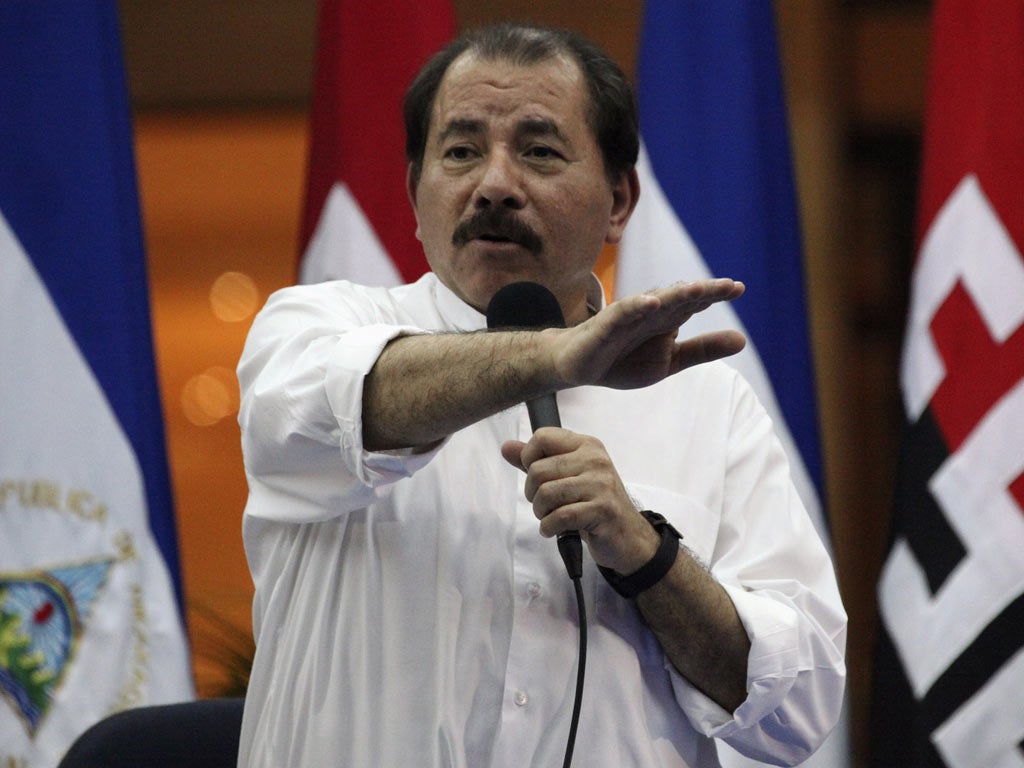Ortega heading for third term in Nicaragua presidential poll
Having changed the constitution, the former rebel leader looks likely to win by a clear margin

Your support helps us to tell the story
From reproductive rights to climate change to Big Tech, The Independent is on the ground when the story is developing. Whether it's investigating the financials of Elon Musk's pro-Trump PAC or producing our latest documentary, 'The A Word', which shines a light on the American women fighting for reproductive rights, we know how important it is to parse out the facts from the messaging.
At such a critical moment in US history, we need reporters on the ground. Your donation allows us to keep sending journalists to speak to both sides of the story.
The Independent is trusted by Americans across the entire political spectrum. And unlike many other quality news outlets, we choose not to lock Americans out of our reporting and analysis with paywalls. We believe quality journalism should be available to everyone, paid for by those who can afford it.
Your support makes all the difference.The incumbent Nicaraguan President, the former rebel leader Daniel Ortega, appeared set to tighten his grip on his impoverished Central American nation yesterday and cruise to a controversial re-election victory.
Against a divided opposition and amid suggestions of electoral irregularities, independent polls predicted that Mr Ortega would pick up nearly 50 per cent of the vote. His two closest rivals – the aging radio host Fabio Gadea and the right-wing former president Arnoldo Alemán – were expected to poll around 30 per cent and 11 per cent, respectively.
Voting began at 7am in a tense atmosphere, with outbursts of violence. In the central town of Sébaco, vehicles were set ablaze and at least 15 protesters and several police officers were injured in clashes between supporters of Mr Ortega's Sandinista party and opposition activists.
That Mr Ortega ran at all took many Nicaraguans by surprise. In 2009, the country's Supreme Court – allegedly packed with Sandinista sympathisers – overturned a constitutional ban on successive presidential re-election.
Meanwhile Luis Yañéz, the head of the EU's delegation to the elections, has spoken of the "clearly obstructionist" tactics of Nicaragua's electoral authority towards opposition candidates. Both the EU team and one from the Organisation of American States were denied official "observer" status by the Sandinista government.
One voter, Ivá* Lara, a 53-year-old business administrator, said he would vote for Mr Gadea. "The other candidates are corrupt. Daniel Ortega, for example, is a candidate who does not respect the constitution." But another, Migdalia Martínez, who runs a sweet stand in Granada, southwest of Managua, took a different view. "The President has a big heart," she said. "He has done so much to help the poor who don't even have a roof over their heads."
Mr Ortega, 65, was first elected president in 1986, after leading the Sandinista revolution that seized power from the corrupt Somoza dictatorship in 1979. Throughout the 1980s, he successfully held off the right-wing Contra counter-rebellion supported by US President Ronald Reagan.
He later reinvented himself, replacing his Marxist rhetoric with frequent references to God and Jesus, and was re-elected in 2006 with 38 per cent of the vote. He has since pulled off the delicate balancing act of aligning himself with Venezuelan President Hugo Chavéz's left-wing Bolivarian alliance while also promoting the kind of pro-market policies he once raged against.
Nicaragua's exports have doubled, foreign direct investment rocketed by 400 per cent and poverty fallen from 65 per cent of the population to 57 percent, according to official statistics.
Join our commenting forum
Join thought-provoking conversations, follow other Independent readers and see their replies
Comments